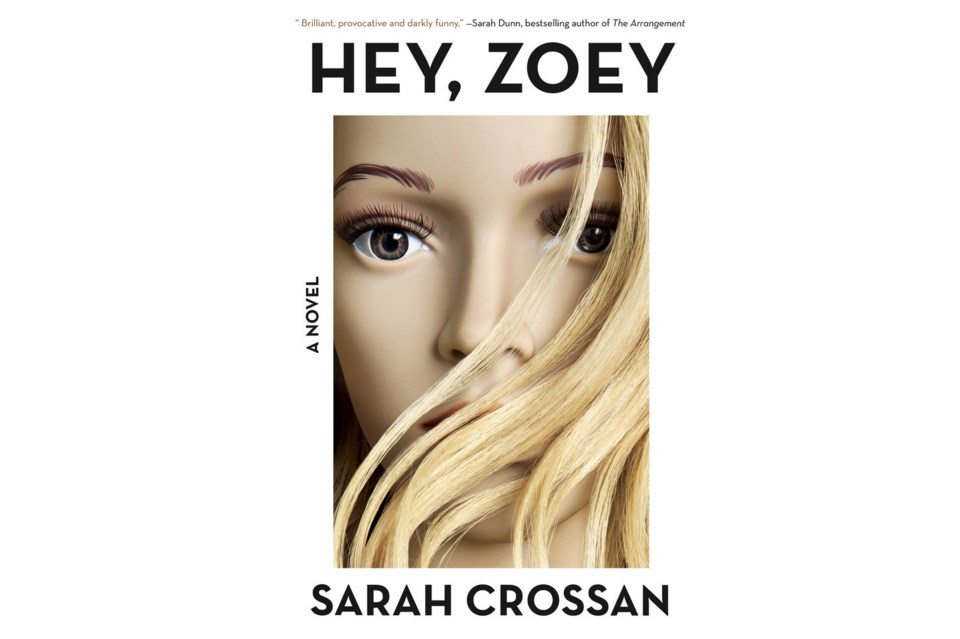Dolores is going through the motions of life when she finds a potentially marriage-ending surprise in her garage: a high-end, lifelike sex doll imbued with artificial intelligence named Zoey.
There are a lot of places that author Sarah Crossan can go from here — when is it cheating? What makes something human or sentient? How can we define a person's value? — and “Hey, Zoey” touches on them all.
But the main focus throughout the story turns out to be women’s autonomy.
The novel jumps straight into Dolores’ life with a rapid-fire series of first-person vignettes, a mosaic of snippets that give an overview of how we got here. Each tidbit ranges from a sentence or two to a few pages and jumps across times and places almost in a stream of consciousness, though the story never becomes lost or incoherent. The bite-size pieces make it easy to tear through, but also to stop and digest when needed.
And you will need to pause now and again.
“Hey, Zoey,” starts out quite funny, at least in a gallows-humor kind of way, before turning sad and then devastating. Even the premise is a bit comedic; a woman whose name is sometimes shortened to Dolly holding her husband’s sex doll, who’s name is Zoey, meaning life. (“Dolores,” in case you’re wondering, means “sorrow” — buckle up.) There's Dolores matter-of-factly giving restaurants one-star reviews based solely on their lighting and music choices — like if they play too much Norah Jones — or reprimanding one of her students for drawing a sexual cartoon, after admitting to him he’s a good artist. And it's extremely British, though Dolores and her family would jump to remind you that they're Irish.
Then, after lulling you into this safe place of silly shenanigans and mundane memories, the story shifts toward morose as the introspection becomes more troubled. The subtle change like bathwater cooling is tempered so that, by the time you realize the water’s grown tepid, you’re too invested to begrudge it for the warmer, funnier bits from before.
Dolores begins talking with Zoey, who becomes a conduit for confronting her own past.
We see how her parents' relationship informed her perceptions of love and marriage. How caring for her younger sister and her baby cousin made her feel needed and connected. And as a teacher with endless students cycling through her class, she feels stagnant. Now, with Zoey, is Dolores replaceable?
As the story progresses, you begin to test your own theories of why Dolores and David’s marriage is falling apart. Her issues are so deeply buried that even Dolores doesn’t have a clue — yet.
Full of microaggressions, cultural touchpoints and self-reflection, “Hey, Zoey” uses AI sentience to consider the issue of women’s autonomy from a new angle.
With a dozen other novels under Crossan's belt, it's to expected that the award-winning author's latest is a page-turner. But the real surprise and delight of “Hey, Zoey” is the compelling story and captivating conversation.
___
AP book reviews: https://apnews.com/hub/book-reviews
Donna Edwards, The Associated Press




